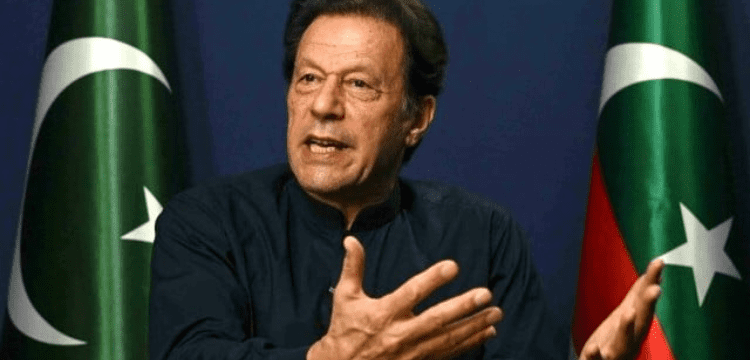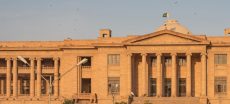[vc_row][vc_column][vc_column_text dp_text_size=”size-4″]Following the formation of a three-member judicial commission to investigate audio leaks, former Prime Minister Imran Khan said on Saturday that the commission should be empowered to investigate ‘powerful and unknown’ elements who tap and record citizens’ telephone conversations, including high-ranking public officials.
“The federal government has formed an inquiry commission to investigate the issue of audio leaks under Section 3 of the Commissions of Inquiry Act, 2017,” he tweeted on his official Twitter account.
The Federal Government has formed Inquiry Commission under Section 3 of the Commissions of Inquiry Act, 2017 to investigate into the issue of Audio Leaks. However, the Terms of Reference formed by the Federal Government suffer from a deliberate omission. They fail to take into…
— Imran Khan (@ImranKhanPTI) May 20, 2023
However, he emphasised that the federal government’s Terms of Reference (ToR) contain a purposeful omission. “They fail to consider who is behind the illegal and unconstitutional surveillance of the PM’s office and sitting Supreme Court judges.”
Also Read: No one feels depressed in villages: Nawazuddin Siddiqui refers to depression as a ‘urban concept’
He argued that the commission should be empowered to investigate who these strong and unknown individuals are who tap and record telephone calls of civilians, including high-ranking public officials. “This is a serious breach of privacy guaranteed under Article 14 of the Constitution,” he added.
“Not only should those who illegally retrieve data through illegal phone tapping and surveillance be held accountable, but so should those who, through fabrication and tampering of various phone calls, leak them on social media.”
He stated that democracies regulated by the rule of law advocate for the state not to intervene arbitrarily in certain sectors of life. “When the state unlawfully surveils an individual, the right to privacy and dignity guaranteed by Article 14 is patently infringed,” he stated.
“Not only should those who illegally retrieve data through illegal phone tapping and surveillance be held accountable, but so should those who, through fabrication and tampering of various phone calls, leak them on social media.”
He stated that democracies regulated by the rule of law advocate for the state not to intervene arbitrarily in certain sectors of life. “When the state unlawfully surveils an individual, the right to privacy and dignity guaranteed by Article 14 is patently infringed,” he stated.
Some of the latest leaked calls, according to Imran Khan, were made over what was intended to be a secure phone line in the Prime Minister’s Office.
“However, they were illegally wiretapped and fabricated/tampered with.” “It appears that the elements behind such audacious tapping operate outside the command and even knowledge of Pakistan’s Prime Minister,” he continued.
“Who are these actors who operate above the law and beyond the command of even the country’s prime minister, and who engage in such illegal surveillance with impunity?” Such elements must be held accountable by the Commission,” he said.
Previously, the federal government established a three-member judicial commission, led by Supreme Court senior puisne judge Justice Qazi Faez Isa, to investigate the veracity of audio leaks and their influence on the judiciary’s independence.
The decision was made during a meeting of the federal cabinet on Friday. Chief Justice Naeem Akhtar Afghan of the Balochistan High Court (BHC) and Chief Justice Aamer Farooq of the Islamabad High Court (IHC) are members of the commission
However, the courts’ assent has yet to be obtained.
Section 3 of the Inquiry Commission Act 2017 provides that “whenever it is expedient to conduct an inquiry into any definite matter of public importance, the Federal Government may, by notification in the official Gazette, constitute a Commission of Inquiry in accordance with the provisions of this Act.”
The commission will investigate the authenticity of the audio leaks as well as their influence on the independence of the judiciary.[/vc_column_text][/vc_column][/vc_row]










